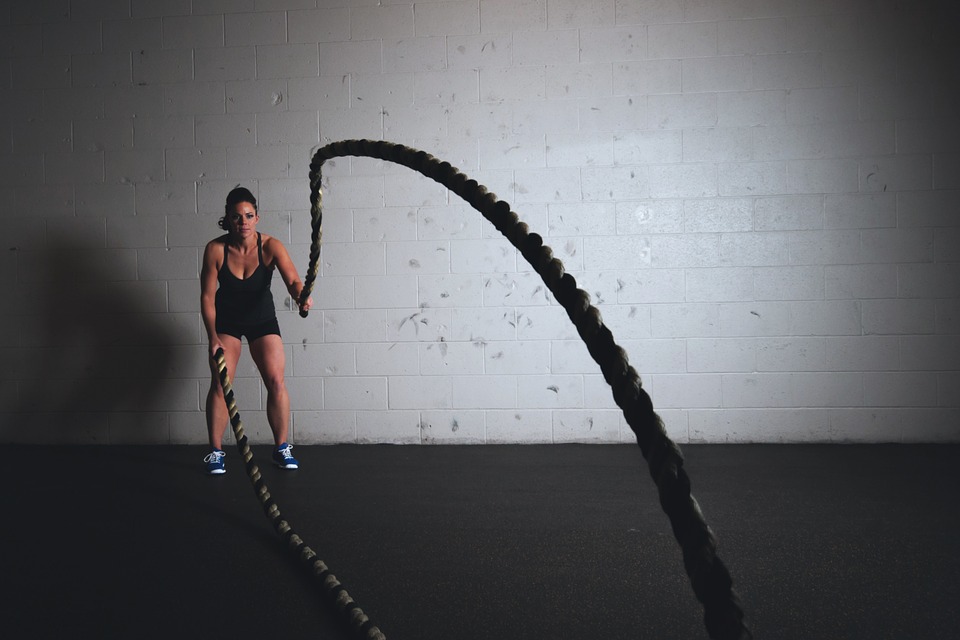January is a time of year where we really start to think about what we want out of lives. Sure when the bell strikes midnight we urgently promise ourselves that the new year will be different, that we want to make some real big changes to our lives. They can be a real mix of things and most of them are based around improving your life in some way. You may want to travel and see the world this year, making it your mission to tick off some of those places on your bucket list. You might see it as an opportunity to improve your finances in some way. Perhaps increasing your disposable income so that it can be used for other investments or fun things in your life. You may want to lose weight, feel better on the inside, get more sleep, tackle your negative thought process and even get fitter.
The truth is, fitness and playing sport can be one of the most popular resolutions that people make at this time of year. Gym memberships sales rise, and people tend to put too much pressure on themselves to get into shape. Of course, in that first week you are fully committed to the cause. But the enthusiasm soon dwindles down as you start to maybe over do it, cause yourself injury or simply take on too much too soon. It is always worth being fully aware of the benefits and also the negative aspects when it comes to making some life-changing decisions, and getting fitter is one of those areas that you need to take serious. It isn’t just about increasing your activity, you need to be mindful of the risk of injury, have the right gear to protect yourself, and gradually set yourself realistic targets to help keep the motivation alive. You can see more gear options here, but I thought it would be an ideal time to highlight some of the good and the bad of starting up a new fitness journey so that you can feel confident that you are well informed.
Your mental health
Mental health can be massively affected when it comes to taking on sports or starting a new fitness journey. After all, medical professionals will encourage people to start taking exercise if they are starting to struggle with things like depression or anxiety. Exercise can encourage your body to release endorphins, which can help to make you feel better on the inside in terms of your happiness and well-being. Exercise, of course, doesn’t need to be anything to physical to have an effect on your mental health. Considering things like swimming or even yoga can make a huge difference to how you feel.
They say that taking on physical activity and sport can help with any mental health issues, which we have more than covered.. It is proven to help calm anxiety, handle depression and even go a long way to helping you feel better. But your mental health can also be affected by sport in regards to your mindset. Sport can be seen as a competition, even your physical fitness can be compared to others, which is when your mindset can take a turn from positive to negative. Which can be a road back to the likes of depression and anxiety. Try and focus on your own journey when it comes to taking part in sport or increasing your physical fitness levels.
The physical benefits and issues you may face
Playing sports will always give you the benefit of looking and feeling better than you have done for a while. Increasing your fitness levels can help you to maintain a good weight, have more energy, and even go as far as improving things like your skin tone and well being. We know that sport and fitness can have positive and negative effects on your mental health, but it is fair to say that there can be positives and negatives physically as well. Here are some of the things ought be aware of.
Blood clots
Blood clots can often be missed by medical professionals when it comes to sports people because the person in question is fit and healthy, someone less viable to suffer with them. But, there are many reasons why an athlete or someone of decent physical fitness could struggle with blood clots. From dehydration and not drinking enough water to long distance travel. Sometimes it’s advisable for athletes to wear compression socks to help reduce the risk. Even things like gaining an injury can put anyone at risk of a blood clot due to the healing period, or even if surgery is needed. While it may be uncommon, it is definitely a health concern not to be dismissed.
Muscles strain
Muscle strain and sports injury are the most common health concern when it comes to physical activity. It can occur at any time more the most common causes are the lack of warm up and cool down before and after training, and pushing yourself too hard when you are actually in a training session. Muscle strains, tears, and injuries can take anywhere from a few days to months to heal and in most cases it’s best to see professionals in sports medicine to ensure that you take the right levels of care and rest to get your body fighting fit once more. It is always best to take extra care when exercising and pushing your body to new limits.
Weight gain
Any athlete will agree, that the moment they stop training or reduce their fitness levels, their weight can be affected. In most cases, this is where someone will gain weight and increase in size. While it may not be a cause for concern, it can be if not dealt with effectively. A quick weight gain can go on to cause other health issues like diabetes and even obesity when it comes to your body mass index. It’s always worth monitoring this if you ever need to reduce your training times.
I hope this has made you more aware of the physical and mental benefits and negatives that go with an increased fitness journey.











